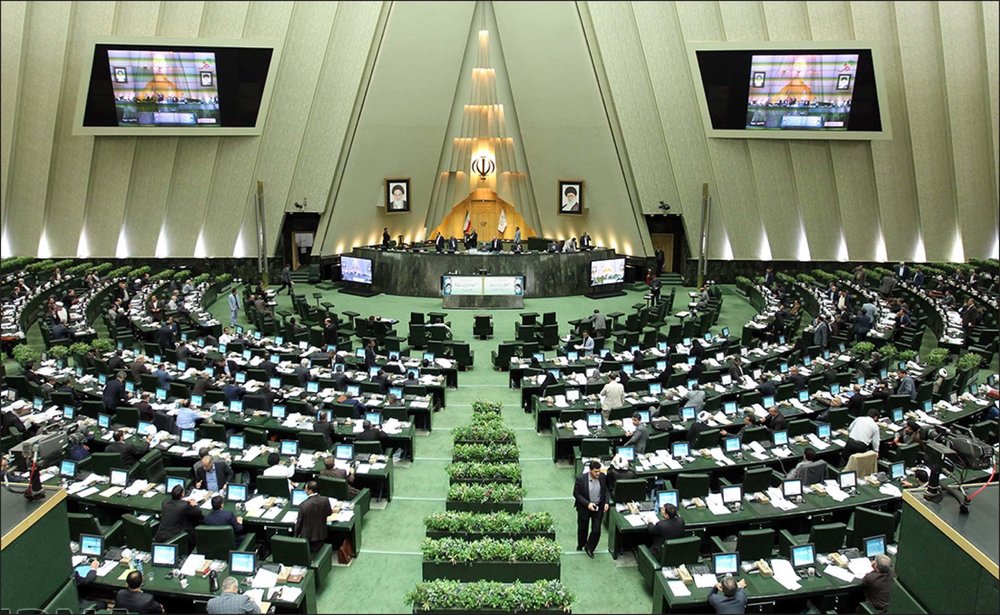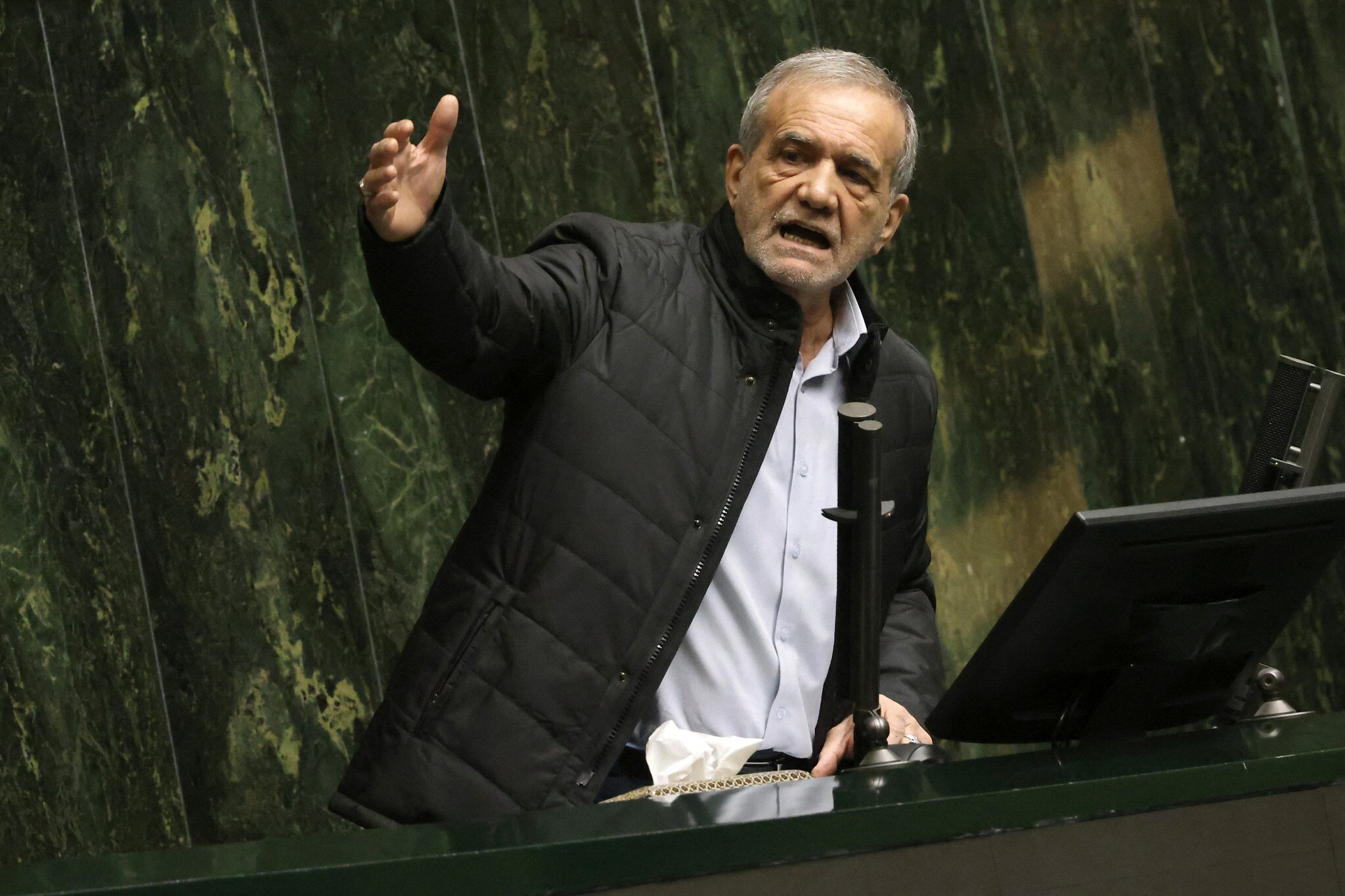Potential Collapse: Fallout of Iranian President Masoud Pezeshkian’s Government Crisis

Pezeshkian revealed that Iran’s Supreme Leader rejected negotiations with the U.S.
Just six months after reformist politician Masoud Pezeshkian’s government took office in Iran, resignations and dismissals have begun to mount amid economic crises driven by U.S. sanctions. Supreme Leader Ali Khamenei remains steadfast in his refusal to negotiate under pressure.
After Donald Trump took office in January 2025, he reinstated the “maximum pressure” policy on Tehran, which he had previously used during his first term (2017–2021) after unilaterally withdrawing from the Iran nuclear deal in 2018.

Repercussions of Pressure
As the U.S. ramps up pressure on Iran, hoping to bring it to the negotiating table over its nuclear program, President Masoud Pezeshkian reaffirmed his commitment to Supreme Leader Ali Khamenei’s directive to reject talks with Washington under pressure.
“We are in a full-scale war with the enemy [...] we must take a war formation,” Pezeshkian said before parliament on March 2, 2025.
“I personally believe in dialogue, and I will continue to do so.”
“However, we will stand by the position the supreme leader has taken regarding America until the end, and we will not do anything else,” he added.

Iran's parliament sacked the country's finance minister, Abdolnaser Hemmati, earlier this month, after impeaching him over soaring inflation and a plunging currency in the same session attended by Pezeshkian, just six months after his appointment.
In a rare move—only the second of its kind since the Islamic Republic’s founding in 1979—Hemmati lost a no-confidence vote, making his dismissal the second-fastest ministerial ousting in Iran’s history. The first was former Interior Minister Ali Kordan, whom parliament removed in 2008 over a forged PhD scandal just three months into his tenure.
Despite Pezeshkian’s efforts to dissuade lawmakers, arguing that Iran was facing its worst economic crisis since the Iran-Iraq War (1980–1988) and that the current challenges were not tied to a single individual, 182 out of 273 MPs present voted for Hemmati’s removal.
Following the dismissal, Iran’s Vice President for Strategic Affairs, Mohammad Javad Zarif, announced his resignation the same day, citing multiple reasons, including his “disappointment with the newly proposed 19-member cabinet.”
“I am ashamed that I failed to properly implement the recommendations of expert committees responsible for selecting candidates and to fulfill my promise of including women, youth, and ethnic groups,” Zarif posted on X.
He then cited another reason, stating that Judiciary Chief Gholam-Hossein Mohseni-Eje’i advised him to return to university teaching to avoid adding further pressure on President Pezeshkian’s administration.
He added that he immediately accepted the advice, as he had always wanted to be “a help, not a burden to anyone,” expressing hope that his resignation would remove any excuses hindering efforts to meet public demands and ensure the government’s success.

Zarif had previously resigned in mid-August 2024 from his new role as Pezeshkian’s deputy, after the latter took office in July, but later reversed his decision.
End of Consensus
Worsening living conditions and foreign policy challenges have intensified pressure on Pezeshkian’s administration, culminating in the parliament’s dismissal of the economy minister—a move widely seen as signaling the end of the “national consensus” between reformists and conservatives.
Following Hemmati’s removal, Vice President Ali Rabii declared that the idea of national consensus between the government and parliament was over, advising Pezeshkian to instead strengthen his ties with the public. “Pezeshkian is heading toward tougher days ahead,” he warned on March 4.
Journalist Ahmad Zeidabadi, writing for the reformist Ham Mihan, argued that Hemmati’s impeachment demonstrated lawmakers’ failure to grasp the root causes of the country’s economic crisis, effectively pushing the concept of national consensus to its breaking point.
Javan, a newspaper close to the Revolutionary Guard, criticized reformist politician Mohammad Ali Abtahi—a Pezeshkian ally—for urging cabinet members to “learn the lesson and not accept a one-sided consensus.”
“The principles of consensus and cooperation are deeply ethical and can be realistically implemented—provided that those around the president do not call for division whenever a political crisis arises," Javan wrote.
“Saying 'do not accept a one-sided consensus' implies that the other side could just as easily demand that the government align with parliament’s decisions—especially when it chooses to dismiss a minister!”
Reformist political activist Mohammad Ali Abtahi, who previously served as chief of staff to former President Mohammad Khatami, weighed in on X on March 3. He warned that the cabinet must take heed of Hemmati’s impeachment just six months into his tenure and should not accept a one-sided consensus. Instead, he urged the government to engage with parliament solely based on legal principles.
Abtahi also criticized the government's openness to accommodating elements from the rival camp under the pretext of “cooperating with parliament.” He reminded officials that “Pezeshkian won the last presidential election—do not let other factions interfere in government affairs as if the election had gone the other way.”
In a March 3 article for the Persian-language Asriran, writer Mehrdad Khadir argued that given the conservative parliament’s stance on Pezeshkian and his administration, the real surprise is not that they impeached Hemmati, but that they initially approved all of Pezeshkian’s ministers.
Khadir predicted that the political standoff between the government and parliament would continue, likely resulting in the removal of more ministers. He added that Pezeshkian’s choice of Hemmati’s replacement would reveal whether he intends to resist parliamentary pressure or maintain the status quo within his economic team.

A Potential Collapse
The growing rift between Supreme Leader Ali Khamenei and President Masoud Pezeshkian over negotiations with the United States has surfaced publicly, revealing deeper divisions within Iran’s leadership.
Political analyst Morad Veisi argued that exposing such disagreements amid rising public discontent highlights the fractures at the top. Writing for the opposition outlet Iran International on March 3, Veisi noted that Pezeshkian lost two key allies in a single day—Hemmati’s dismissal and Zarif’s resignation.
He pointed out that Pezeshkian’s remarks linking Khamenei’s opposition to U.S. negotiations with Iran’s worsening economic crisis subtly shift responsibility onto the Supreme Leader. In doing so, Pezeshkian implicitly suggests that if Khamenei refuses to engage diplomatically, he must also bear the consequences.
According to Veisi, such divisions at the highest levels of government signal a deepening internal fracture—one of the hallmarks of authoritarian regimes approaching collapse.
“In dictatorial systems, survival depends heavily on internal cohesion, yet now we see an open dispute between the Supreme Leader and the President over one of the country’s most crucial issues,” he wrote.
The rift widened further when Hemmati, after his dismissal, exposed large-scale corruption, revealing that $30 billion is smuggled annually through illicit ports—an amount equal to Iran’s total oil revenues. Veisi noted that these ports fall under Revolutionary Guard control, implying military institutions are directly involved. He stressed that such large-scale smuggling requires a well-organized network backed by the security apparatus.
In Veisi’s view, the latest developments indicate mounting domestic and international pressure on Tehran’s leadership, alongside a widening leadership gap.
On one side, Khamenei insists on maintaining an adversarial stance toward the U.S., seeing hostility as essential to the regime’s ideological legitimacy. On the other, Pezeshkian’s government understands that without negotiations and sanctions relief, economic survival is impossible.
“These contradictions expose a deep leadership crisis, leaving the Iranian regime in an increasingly fragile state,” Veisi concluded.
Khamenei said Iran spent two years in negotiations, eventually reaching an agreement, arguing it was “generous and made significant concessions” during the marathon negotiations.
“However, the Americans did not honor the agreement. The very person who is in office now tore up the agreement,” he said, referring to Donald Trump, who last month returned to the White House for his second term.
Sources
- Khamenei says negotiations with US 'not wise' and 'won't solve' Iran's problems
- Iran lawmakers sack minister over economic woes
- Zarif officially resigns from Pezeshkian's government and reveals details of his decision. [Arabic]
- Is Hemmati's dismissal the beginning of a confrontation between the government and parliament in Iran? [Arabic]
- Pezeshkian promises fall short: The "National Accord" government is faltering. [Arabic]
- Could the "public disagreements" between Khamenei and Pezeshkian lead to the "potential downfall" of the Iranian regime? [Arabic]
- After the failure of "national reconciliation" with hardliners, is the Iranian president considering reconciliation with the people? [Arabic]









